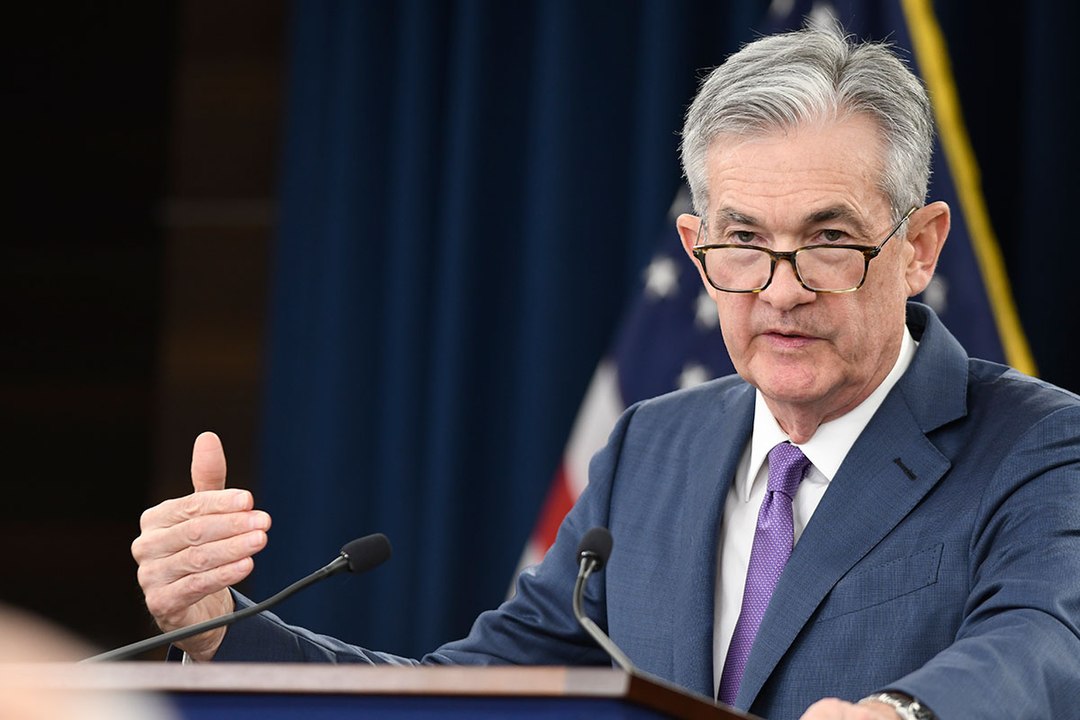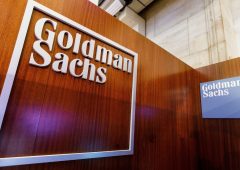Will Jerome Powell Hint at Major Rate Cuts This Friday?
20.08.2024 11:30 2 min. read Alexander Stefanov
As the Jackson Hole Economic Symposium approaches, all eyes are on Fed Chair Jerome Powell's upcoming speech.
Analysts at Evercore ISI predict that Powell will adopt a flexible stance regarding future interest rate cuts.
In their latest analysis, Evercore ISI suggests that Powell’s speech is likely to offer insights into the Federal Reserve’s potential approach to lowering rates. They anticipate that Powell will signal a readiness to implement significant rate reductions if economic conditions warrant such action.
The analysts foresee Powell reassuring the market by indicating that substantial cuts, potentially up to 50 basis points, could be on the table. However, they expect the Fed to primarily consider smaller, gradual cuts of 25 basis points. The criteria for making larger cuts are not expected to be very stringent.
Evercore ISI also expects Powell to express optimism that inflation is gradually moving towards the Fed’s 2% target and to hint that rate cuts might begin as soon as September. However, a precise commitment to the size of the cuts is not anticipated.
Powell’s speech will likely concentrate on the progress made in managing inflation and adjusting the labor market. The decision on the magnitude of the initial rate cut will probably hinge on upcoming employment data.
Additionally, analysts expect Powell to characterize the Fed as adaptable and responsive to changing economic indicators, especially those related to the labor market.
-
1
Gold Beats U.S. Stock Market Over 25 Years, Even With Dividends Included
13.07.2025 15:00 1 min. read -
2
US Inflation Heats Up in June, Fueling Uncertainty Around Fed Cuts
15.07.2025 16:15 2 min. read -
3
U.S. Announces Sweeping New Tariffs on 30+ Countries
12.07.2025 16:30 2 min. read -
4
Robert Kiyosaki Predicts When The Price of Silver Will Explode
28.06.2025 16:30 2 min. read -
5
Key U.S. Economic Events to Watch Next Week
06.07.2025 19:00 2 min. read
US Inflation Heats Up in June, Fueling Uncertainty Around Fed Cuts
U.S. inflation accelerated in June, dealing a potential setback to expectations of imminent Federal Reserve rate cuts.
Gold Beats U.S. Stock Market Over 25 Years, Even With Dividends Included
In a surprising long-term performance shift, gold has officially outpaced the U.S. stock market over the past 25 years—dividends included.
U.S. Announces Sweeping New Tariffs on 30+ Countries
The United States has rolled out a broad set of new import tariffs this week, targeting over 30 countries and economic blocs in a sharp escalation of its trade protection measures, according to list from WatcherGuru.
Key U.S. Economic Events to Watch Next Week
After a week of record-setting gains in U.S. markets, investors are shifting focus to a quieter yet crucial stretch of macroeconomic developments.
-
1
Gold Beats U.S. Stock Market Over 25 Years, Even With Dividends Included
13.07.2025 15:00 1 min. read -
2
US Inflation Heats Up in June, Fueling Uncertainty Around Fed Cuts
15.07.2025 16:15 2 min. read -
3
U.S. Announces Sweeping New Tariffs on 30+ Countries
12.07.2025 16:30 2 min. read -
4
Robert Kiyosaki Predicts When The Price of Silver Will Explode
28.06.2025 16:30 2 min. read -
5
Key U.S. Economic Events to Watch Next Week
06.07.2025 19:00 2 min. read


